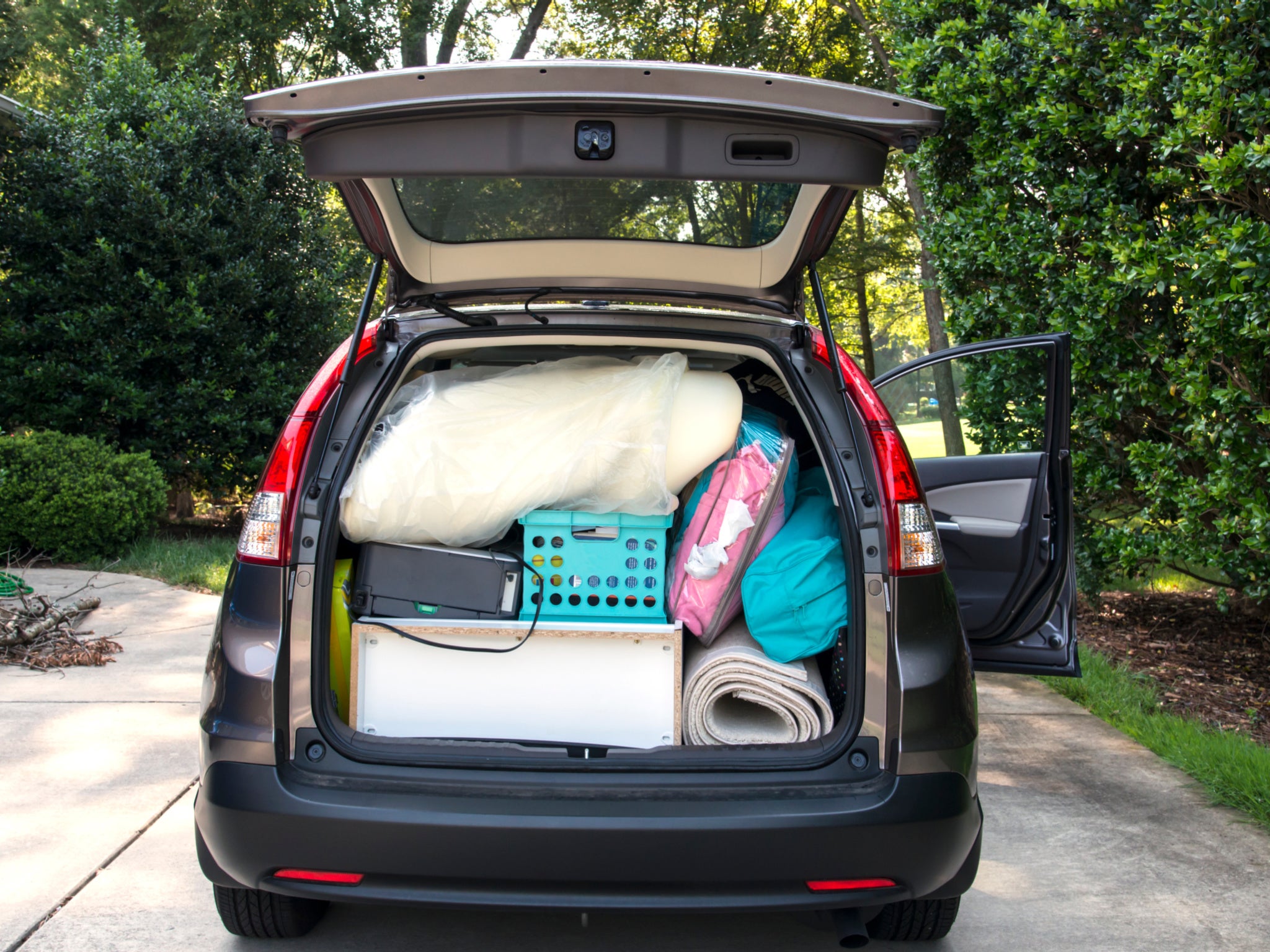Warning to holidaymakers that they could face £300 fine for overpacking their car this summer
Overpacking by 15 per cent more than the weight limit can lead to the maximum fine

Your support helps us to tell the story
From reproductive rights to climate change to Big Tech, The Independent is on the ground when the story is developing. Whether it's investigating the financials of Elon Musk's pro-Trump PAC or producing our latest documentary, 'The A Word', which shines a light on the American women fighting for reproductive rights, we know how important it is to parse out the facts from the messaging.
At such a critical moment in US history, we need reporters on the ground. Your donation allows us to keep sending journalists to speak to both sides of the story.
The Independent is trusted by Americans across the entire political spectrum. And unlike many other quality news outlets, we choose not to lock Americans out of our reporting and analysis with paywalls. We believe quality journalism should be available to everyone, paid for by those who can afford it.
Your support makes all the difference.Overpacking a car when driving on UK roads can lead to a hefty fine, as well as points on your license, holidaymakers are being warned.
If you overpack your car by 15 per cent more than the weight limit, the maximum penalty could be £300 and three points on your license.
But you will be charged even if you overpack your vehicle by a small amount, with fines ranging from £100 for anything under 10 per cent and £200 for violations of 10 to 15 per cent.
According to guidance from the DVSA on roadside checks, fines can be issued for any vehicle that is deemed unsafe because it is carrying too much weight. DVSA data shows that between April 2020 and December 2023, 34.9 per cent of car weight checks resulted in overloaded prohibitions being issued.
To help you calculate whether or not your vehicle is overloaded, you need to consult your car’s manual and look for the figure of the payload weight.
Payload weight refers to the maximum amount of additional weight that you can add to your car before it is deemed unsafe and differs between vehicles. For smaller cars, such as the Kia Picanto, Fiat 500, and Volkswagen Polo, the maximum payload weight can be between 385kg and 482kg.
Assuming you have four adult passengers, each with one suitcase and a piece of hand luggage, it becomes quite easy to exceed a 400kg payload. Four adults weighing 75kg each plus four 20kg suitcases and four 10kg hand luggages works out at 420kg.
A spokesperson from Howden Insurance said: “With nearly three-quarters of Brits intending to go on a holiday within the UK this year, many will be planning to drive to the airport at the start of their trip.
“It is easy to overpack when planning a holiday, especially if you have children. Rules around overpacking your car are often overlooked but if you’re not careful it could be the difference between a carefree start to the holiday and fines of up to £300.”
If you do neeed to pack a lot of equipment, experts recommend loading heavier items first. This helps the vehicle to maintain a lower centre of gravity and should make it the vehicle easier to handle.
Smaller items of hand luggage can be tucked under the rear passenger footwells. This prevents the boot from being loaded above the top of the back seat, which can otherwise impede the driver’s rear view.
Driving outside of the UK? Read our guide to the laws on driving abroad
Join our commenting forum
Join thought-provoking conversations, follow other Independent readers and see their replies
Comments